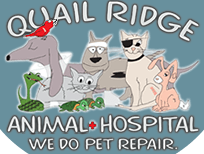Keeping your pets safe is one of the biggest responsibilities of a pet owner. One of the biggest dangers for our pets can be the homes where they live. There are many things lying around the house that are dangerous for pets. Knowing what is toxic for your pets and where dangerous items are kept will help you ensure that your pets stay safe.
Keep Food Out of Reach
As your veterinarian is likely to tell you, human food is for humans. In addition to not feeding your pets from the table, be sure to keep your food out of their reach. Some common foods like chocolate, nuts, and grapes are toxic for pets.
Put Toxic Cleaners and other Chemicals Away
Pets like to explore, and they sometimes get into trouble. Make sure that trouble isn’t deadly by keeping household toxins like cleaners locked in a place that pets can’t access.
Be Aware of Toxic Plants
As the weather gets warmer, it will be time once again for gardening. Some common plants, including vegetable plants and flowers, are poisonous for pets. Do your research or ask your vet which plants are dangerous. You can either keep those plants out of your yard, or make sure your pets can’t get to them.
Make Sure Pets Can’t Get to Pest Traps
The poisons used to kill pests can also harm pets. If you do have traps laid, make sure they are tucked away where your pets can’t get them.
Keep Medicine Out of Reach
When storing prescription medications or over the counter meds, always keep the lids on tight and store them up in a cupboard that can’t be accessed by pets.
Make Sure Household Garbage is Inaccessible to Pets
Pets can make a real mess of the garbage. They can also get sick. Common throwaway items like coffee grounds can make your pets ill, so be sure to keep the garbage in a pet-proof place.
Keep Pets Away from Lawns that Have Been Fertilized or Treated
If you use fertilizer or herbicide on your lawn or other parts of your yard, be sure to keep your pets away until it is safe and dry.
Only Use Pet Products as Instructed
Pet medications and products can sometimes fool us. We might think that if they are safe for one animal, they are safe for others, but products specifically designed for your dog, for example, can be toxic to your cat. Make sure you use pet products only as directed by your vet. As always, if you have questions, contact the friendly staff at your local animal hospital.

